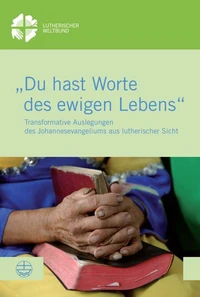Religion: Help or Hindrance to Development?
Par :Formats :
Disponible dans votre compte client Decitre ou Furet du Nord dès validation de votre commande. Le format PDF est :
- Compatible avec une lecture sur My Vivlio (smartphone, tablette, ordinateur)
- Compatible avec une lecture sur liseuses Vivlio
- Pour les liseuses autres que Vivlio, vous devez utiliser le logiciel Adobe Digital Edition. Non compatible avec la lecture sur les liseuses Kindle, Remarkable et Sony
 , qui est-ce ?
, qui est-ce ?Notre partenaire de plateforme de lecture numérique où vous retrouverez l'ensemble de vos ebooks gratuitement
Pour en savoir plus sur nos ebooks, consultez notre aide en ligne ici
- Nombre de pages256
- FormatPDF
- ISBN978-3-374-03864-0
- EAN9783374038640
- Date de parution26/11/2013
- Protection num.Digital Watermarking
- Taille3 Mo
- Infos supplémentairespdf
- ÉditeurEvangelische Verlagsanstalt
Résumé
The decline of religion in the Western world used to be regarded as a direct consequence of development, and it was assumed that this would also occur in the global South once the same levels of economic development had been reached. The current flourishing of religion in the global South and the increased awareness of its significance in the global North prove that religion continues to play a crucial role.
In those contexts where religion frames reality, development cannot ignore religion. This collection of essays by scholars and development practitioners from Africa, Asia, Europe and Latin and North America explores the fascinating interface between religion and development as well as the negative and positive potential of religion in development. With contributions by Karel Th. August, Michael Biehl, Carlos Bonilla, Theresa Carino, Andreas Heuser, Eberhard Hitzler, Lindora Howard-Diawara, Martin Junge, Rebecca Larson, Michael Martin, Madipoane Masenya (ngwan'a Mphahlele), Johnson Mbillah, Ambrose Moyo, Kenneth Mtata, Samuel Ngun Ling, Kjell Nordstokke, Muriel Orevillo-Montenegro, Claudia Warning abd Vítor Westhelle.
In those contexts where religion frames reality, development cannot ignore religion. This collection of essays by scholars and development practitioners from Africa, Asia, Europe and Latin and North America explores the fascinating interface between religion and development as well as the negative and positive potential of religion in development. With contributions by Karel Th. August, Michael Biehl, Carlos Bonilla, Theresa Carino, Andreas Heuser, Eberhard Hitzler, Lindora Howard-Diawara, Martin Junge, Rebecca Larson, Michael Martin, Madipoane Masenya (ngwan'a Mphahlele), Johnson Mbillah, Ambrose Moyo, Kenneth Mtata, Samuel Ngun Ling, Kjell Nordstokke, Muriel Orevillo-Montenegro, Claudia Warning abd Vítor Westhelle.
The decline of religion in the Western world used to be regarded as a direct consequence of development, and it was assumed that this would also occur in the global South once the same levels of economic development had been reached. The current flourishing of religion in the global South and the increased awareness of its significance in the global North prove that religion continues to play a crucial role.
In those contexts where religion frames reality, development cannot ignore religion. This collection of essays by scholars and development practitioners from Africa, Asia, Europe and Latin and North America explores the fascinating interface between religion and development as well as the negative and positive potential of religion in development. With contributions by Karel Th. August, Michael Biehl, Carlos Bonilla, Theresa Carino, Andreas Heuser, Eberhard Hitzler, Lindora Howard-Diawara, Martin Junge, Rebecca Larson, Michael Martin, Madipoane Masenya (ngwan'a Mphahlele), Johnson Mbillah, Ambrose Moyo, Kenneth Mtata, Samuel Ngun Ling, Kjell Nordstokke, Muriel Orevillo-Montenegro, Claudia Warning abd Vítor Westhelle.
In those contexts where religion frames reality, development cannot ignore religion. This collection of essays by scholars and development practitioners from Africa, Asia, Europe and Latin and North America explores the fascinating interface between religion and development as well as the negative and positive potential of religion in development. With contributions by Karel Th. August, Michael Biehl, Carlos Bonilla, Theresa Carino, Andreas Heuser, Eberhard Hitzler, Lindora Howard-Diawara, Martin Junge, Rebecca Larson, Michael Martin, Madipoane Masenya (ngwan'a Mphahlele), Johnson Mbillah, Ambrose Moyo, Kenneth Mtata, Samuel Ngun Ling, Kjell Nordstokke, Muriel Orevillo-Montenegro, Claudia Warning abd Vítor Westhelle.



